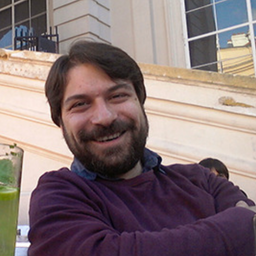New perspectives of re-valuation : transforming the coal-based urban identity of Zonguldak
My Session Status
What:
Paper
When:
2:30 PM, Monday 29 Aug 2022
(20 minutes)
Where:
UQAM, pavillon J.-A. De Sève (DS)
- DS-1420
Standing on challenging geographic conditions for habitation, City of Zonguldak, located on the north-western coast of Anatolia, has cultivated in direct connection with the mining industry, following the discovery of coal in the early 19th century. The settlement quickly transformed into a mining town, operated by companies of foreign capital, resulting in a distributed organization of industrial facilities, temporary structures and transportation network around mining locations. Approaching industrialization as not only a crucial target leading to economic progress and independence, but also a tool for supporting the modernization of the society, the Republican administration after 1920, introduced integral planning and subsidiary industrial facilities in the coalfield through central government agencies, which generated social, cultural and spatial manifestations such as community spirit, institution-governed western lifestyle and organization of a strong working class. The urban
and social fabric of the city has been shaped primarily through industrial policies, institutions and culture of the late 19th and early 20th century, bringing about a unique urban image.
As the coal production in the coalfield reached to its peak in the 1970s, Zonguldak turned into an industrial centre dominating a linear territory of sub-centres accomodating 800.000 population and modern investments of thermoelectric plants, metal production and industrial transportation. Following the neoliberal policies of the 1980s and 1990s, mainly through privatization of mining operations and preference of cheaper imported coal, production decreased in the coalfield; not only resulting in the fracture of the bonds between industry and socio-cultural structure, but also leaving many of the coal-related facilities idle.
Zonguldak demonstrates a complex urban identity shaped by coal and labour as the primary components evident in the urban structure, image and memory. City’s industrial identity, though complex, multi-layered and dynamic, presents a unique site of industrial heritage in Turkey, including interconnected examples of “sites, structures, complexes, areas and landscapes as well as the related machinery, objects or documents” (ICOMOS, & TICCIH, 2011), stand as relics of westernization and modernisation policies acting on the rugged topography and wild landscape of the region.
In parallel with the degrading of mining-related institutions, the city has been suffering from losing its constitutional source of cultural and social identity. Active industrial facilities designed for processing the local coal, mostly privatized, operate in a closed mode both financially and physically with minimal economic and social contributions for the local communities. Furthermore, residents suffer from various health risks caused by air, water and soil pollution depending on operation conditions of the plants and wrong planning decisions.
Utilizing this background and reading the coalfield as an extensive industrial heritage site, this study aims to discuss conservation-based re-valuation strategies of cultural tourism in the coalfield, by inspecting contemporary academic and administrative documents dealing with cultural tourism targets, comparing prominent examples such as Ruhr industrial area and analyzing the opportunities of the post-industrial sites and landscape areas in Zonguldak. Tourism, a primary tool for cultural interaction, resource generation and public education when employed wisely, is regarded as a significant potential for the conservation of natural and cultural heritage (ICOMOS, 1999). Beginning with 2015, local government and regional agencies started to work on a variety of tourism themes such as natural, geological and cultural, however unique features of the city such as spatial manifestations of the coal-based urban image and the sublime post-industrial landscape of the coalfield should be
reconsidered as the primary governing themes of the re-valuation strategy. In parallel, integral ecological transformation of the post-industrial areas are crucial for the sustainability of the strategy.
